Guiding mayors to purposeful, positive city transformation.
MICD is a leadership initiative of the National Endowment for the Arts in partnership with the United States Conference of Mayors.
Through a variety of collaborative sessions, programs, and resources, we educate mayors on city design and connect them with a diverse network of design leaders who help them overcome challenges and solve problems. As our program has proven, when we lead with design, we lead the way to purposeful, positive transformation in our communities.
The Honorable Joseph P. Riley, Jr.
Founder of the Mayors’ Institute on City Design
Mayor, Charleston, SC (1975 - 2016)
We believe that all well-designed cities have three key characteristics.
-
01 —
They’re resilient.
Cities should be resourceful, sustainable, and regenerative – providing a healthy home for current and future generations.
-
02 —
They’re equitable.
Cities should offer accessible housing, transportation, and economic mobility for all.
-
03 —
They thrive.
Cities should enrich everyday life with beauty, connection, and opportunities for fulfillment.
Our Programs
We offer highly collaborative in-person sessions, fellowship programs, virtual learning, and more to educate on everything from historic building restoration to development to neighborhood revitalization.
Institute Sessions
Institute Sessions are the core of MICD. At these collaborative workshops, mayors engage with design leaders to find solutions to the most critical planning and design challenges facing their cities. Sessions are organized around case study projects: Each mayor presents a project from their city and receives feedback from other mayors and design leaders.
eligibility
Participation at Institute Sessions is by invitation only. To express interest in a future invitation, please contact us.
Time Commitment
Institute Sessions consist of hosting a site visit with the session host prior to the session, preparing a 15-minute presentation about the selected project, and leading the 2.5 day session. Mayors are expected to attend the entire session, as participation is extremely limited.
Location
Institute Sessions are hosted around the country in various host cities each year.
MICD Just City Mayoral Fellowship
The MICD Just City Mayoral Fellowship is a unique, highly interactive, semester-long program that brings together a small group of mayors and their staff to directly tackle injustices in each of their cities through planning and design interventions.
Eligibility
MICD Just City Mayoral Fellows are selected based on an open call for expressions of interest in the months before the Fellowship begins. All U.S. mayors are eligible to express interest. Each cohort is curated with different themes, commonalities, and city sizes in mind. Selected mayors identify two key staff members to take part in the weekly classes and all virtual components of the Fellowship.
Time Commitment
The MICD Just City Mayoral Fellowship is an intensive, semester-long program with a significant time commitment required: 1.5-day kickoff event (in-person, mayors); biweekly 90-minute meetings (virtual); readings and homework (self-paced); and a 2.5-day closing workshop (in-person, mayors + staff).
Location
Virtual and in-person (location varies)
Virtual Seminars
Virtual Seminars are engaging and interactive learning and discussion opportunities for small groups of mayors and city staff. Each one-hour seminar features a deep-dive presentation on a single timely topic from a design expert, followed by a moderated group discussion among the attending mayors and city staff.
Eligibility
MICD Virtual Seminars are open to mayors and their staff (MICD alumni and non-alumni welcome). A recording of the presentation portion is made public after the event. Registration is required.
Time Commitment
MICD Virtual Seminars are one hour long, typically structured as a 30-minute presentation followed by a 30-minute non-public, moderated discussion among the attending mayors and city staff.
Location
Virtual
Alumni Advising
MICD Alumni Advising helps alumni mayors continue addressing the complex challenges facing today’s cities, beyond the traditional MICD Institute Session model. MICD matches alumni mayors with a pair of nationally renowned design experts to advise the mayor on their selected city design challenge.
Eligibility
Some rounds may be geared toward alumni of recent sessions or specific programs (such as the MICD Just City Mayoral Fellowship), or begin with an open call for interest.
Time Commitment
Mayors hone in on a key question or issue that would most benefit from follow-up assistance. Once the Resource Team selection is made by MICD, the mayor and their staff will participate in two 60-minute virtual meetings to explore solutions and next steps.
Location
Virtual
Our Leadership
MICD is a leadership initiative of the National Endowment for the Arts in partnership with the United States Conference of Mayors.

National Endowment for the Arts
Established by Congress in 1965, the National Endowment for the Arts is an independent federal agency that is the largest funder of the arts and arts education in communities nationwide and a catalyst of public and private support for the arts. By advancing equitable opportunities for arts participation and practice, the NEA fosters and sustains an environment in which the arts benefit everyone in the United States.
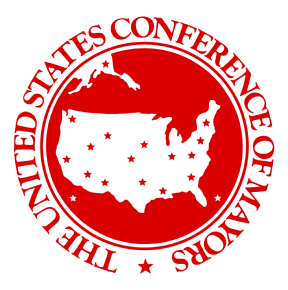
The United States Conference of Mayors
The United States Conference of Mayors (USCM) is the official nonpartisan organization of cities with populations of 30,000 or more. There are nearly 1,400 such cities in the country today, and each city is represented in the Conference by its chief elected official, the mayor.
Our Team
We work with one purpose – to help mayors improve people's lives through the power of design.
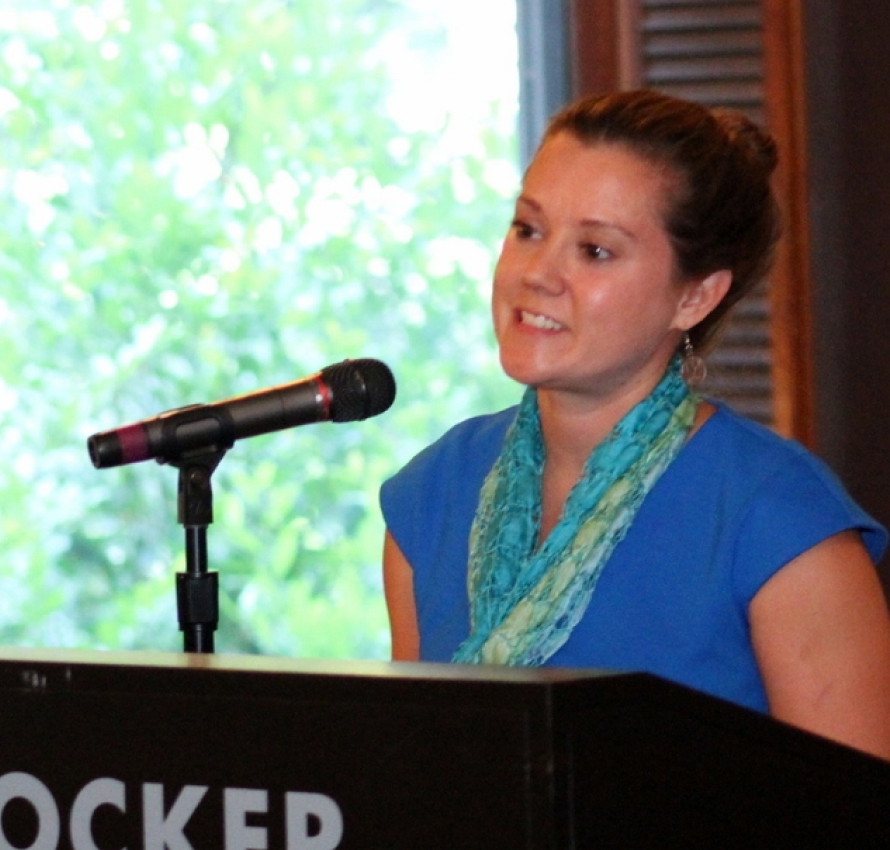
Trinity Simons Wagner
Executive Director
Mayors' Institute on City Design
Trinity Simons Wagner has served as the Executive Director of the Mayors’ Institute on City Design (MICD) since 2012. She’s dedicated to helping mayors lead with design, move boldly, and foster equitable outcomes through policy. At MICD, she’s worked directly with 500+ mayors and moderated 75+ Institute Sessions, the Institute’s flagship program connecting mayors with design leaders on the nation’s most pressing urban planning and design challenges.
More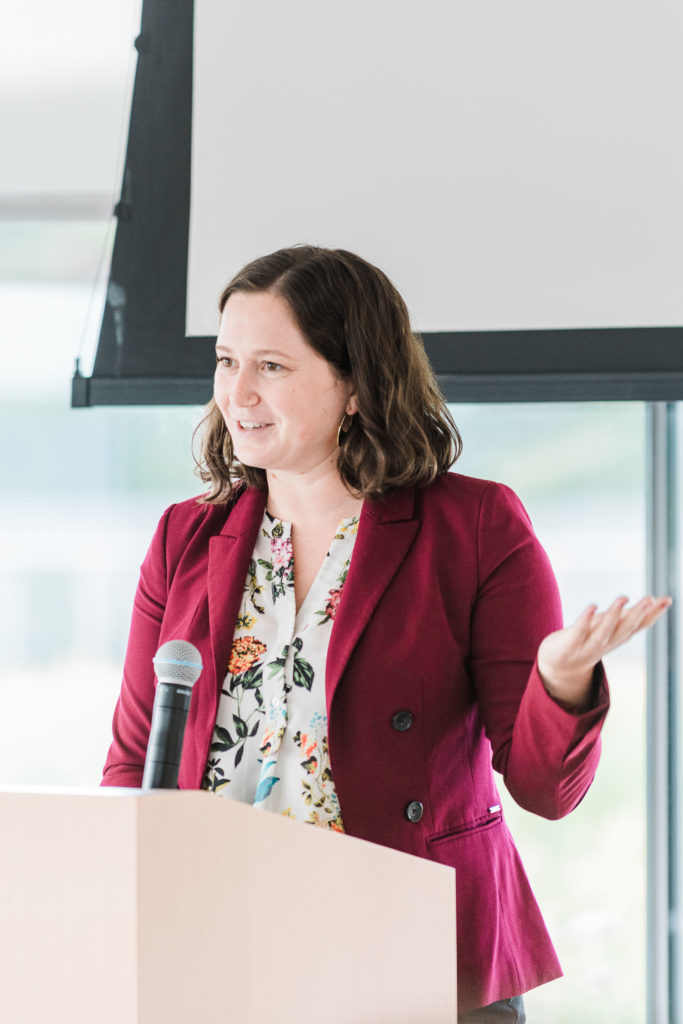
Grace Oran
Program Director
Mayors' Institute on City Design
Grace Oran has served as the Program Director of the Mayors’ Institute on City Design (MICD) since 2022 and has been with the Institute since 2017. She’s passionate about empowering mayors to lead with design, and she believes in the power of local governments to embed justice and equity into the fabric of their city. As Program Director, Grace brings people together, fosters collaboration, and creates open, candid environments where ideas can blossom.
More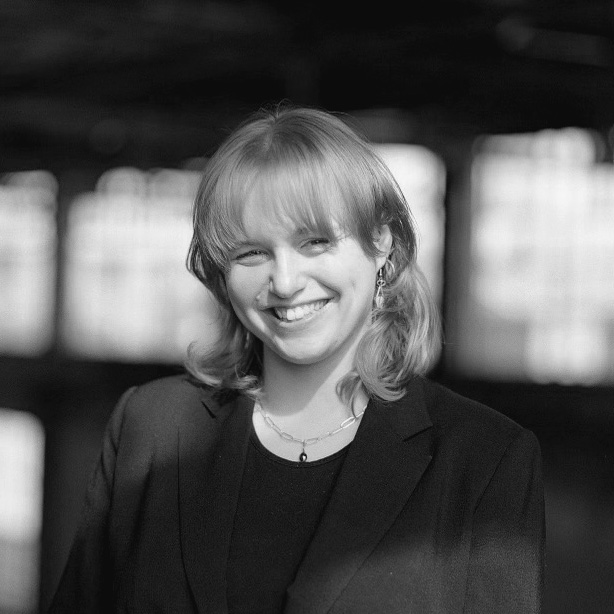
Ineke Knudsen
Program Coordinator
Mayors' Institute on City Design
Ineke Knudsen joined the Mayors’ Institute on City Design (MICD) as Program Coordinator in January 2025. Her role with MICD spans event and travel logistics, public communications, and in-person event coordination. Ineke’s expertise is in event management and fine arts, but she is very excited to work with mayors to both deepen her understanding of city government and see some amazing public projects realized.
MorePartners & Hosts
We're honored to work with a wide range of universities and institutions to help mayors improve people's lives through the power of design. Recent partners include:University of Florida School of Architecture
Gainesville, FL
Visit University of Florida School of ArchitectureNew York University School of Professional Studies Schack Institute of Real Estate
New York, NY
Visit New York University School of Professional Studies Schack Institute of Real EstateFlorida Center for Community Design and Research at the University of South Florida
Tampa, FL
Visit Florida Center for Community Design and Research at the University of South FloridaUniversity of Hawaii Community Design Center
honolulu — hi
Visit University of Hawaii Community Design CenterJust City Lab at the Harvard Graduate School of Design
cambridge — ma
Visit Just City Lab at the Harvard Graduate School of DesignTulane University School of Architecture
new orleans — la
Visit Tulane University School of ArchitectureUniversity of Oklahoma Institute for Quality Communities
norman — ok
Visit University of Oklahoma Institute for Quality CommunitiesUniversity of Texas School of Architecture
austin — tx
Visit University of Texas School of ArchitectureFlorida Center for Community Design and Research
Tampa — FL
Visit Florida Center for Community Design and ResearchBall State University College of Architecture and Planning
indianapolis — in
Visit Ball State University College of Architecture and PlanningInterested in hosting a session?
Our History
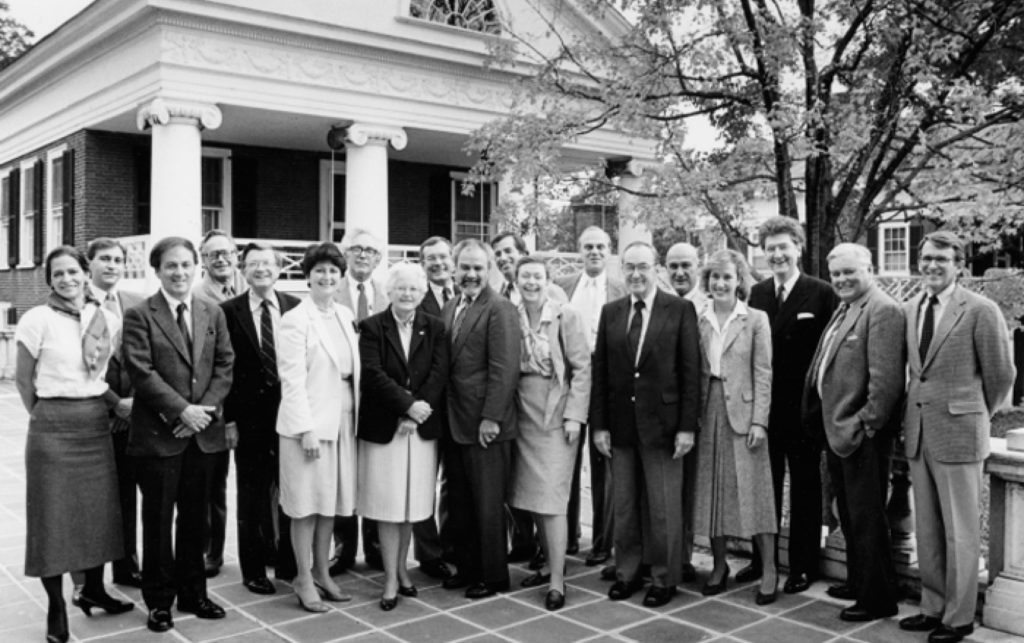
In January 1985,
then-Mayor Joseph P. Riley, Jr. of Charleston, SC wrote a letter to Jaquelin T. Robertson, then-Dean of the University of Virginia School of Architecture, suggesting that an institute be created in which mayors would meet with prominent designers to discuss design challenges facing their cities. Subsequently, they visited Adele Chatfield Taylor, then-Design Director at the National Endowment for the Arts (NEA), and the NEA’s Mayors’ Institute on City Design (MICD) was born. On October 23, 1986, the first Mayors’ Institute on City Design session was hosted at the University of Virginia.
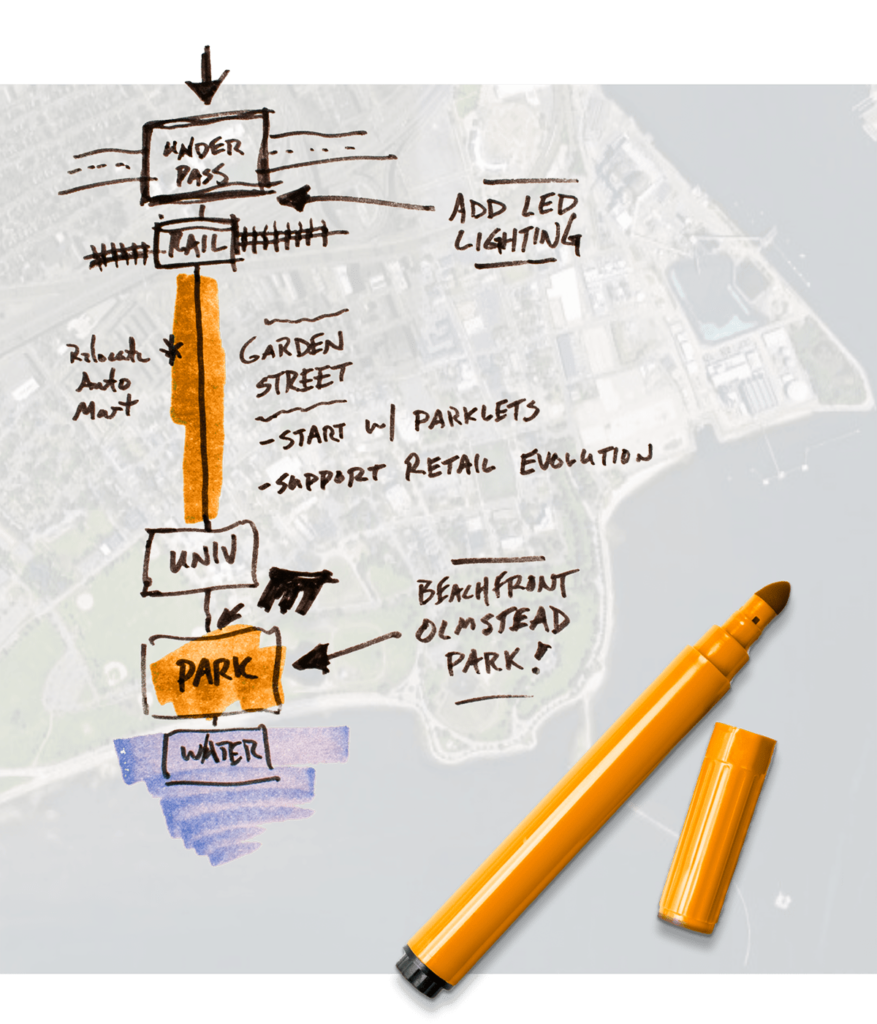
The core of MICD’s work is still in these Institute Sessions, which are held several times a year throughout the country. In much the same format as the first session in 1986, mayors engage leading design and development experts to find solutions to the most critical planning and design challenges facing their cities. These two-and-one-half day sessions are organized around case study projects: each mayor presents a project from their city and receives robust feedback from other mayors and design professionals.
Since the program’s inception, over 1,200 mayors have participated in MICD sessions.
Many mayors have described their MICD experience as among the most influential and memorable events of their time in office, and Resource Team members – volunteers who receive a modest honorarium – often remark that they learned as much from the mayors as the mayors learned from them.
In 1991,
MICD began partnering with universities and design- related nonprofits around the country to host additional MICD sessions.
In 2007,
MICD responds to times of need with special programming. A special session of MICD was held for Gulf Coast cities to assist with recovery from Hurricane Katrina. In 2013, a similar session was held for New Jersey mayors following Superstorm Sandy.
In 2011,
for MICD’s 25th anniversary and 50th National Session, some 300 mayors, design professionals, government officials, business leaders, and others met in Chicago for a National Mayors Summit on City Design.
Since 2016,
MICD has been operated by the United States Conference of Mayors under a cooperative agreement with the National Endowment for the Arts.
In 2020,
MICD launched new programming to expand access to design education for mayors and better serve alumni mayors:
- MICD Just City Mayoral Fellowship
- Alumni Advising
- Virtual Seminars
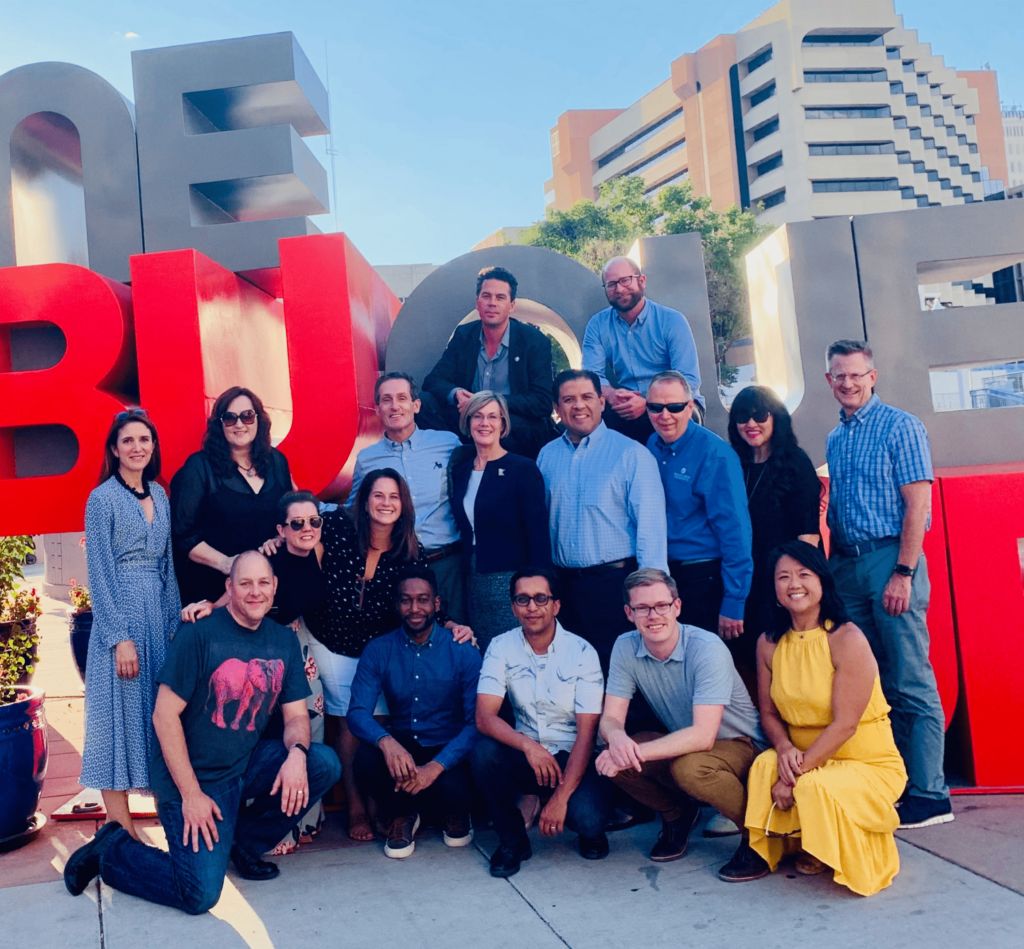
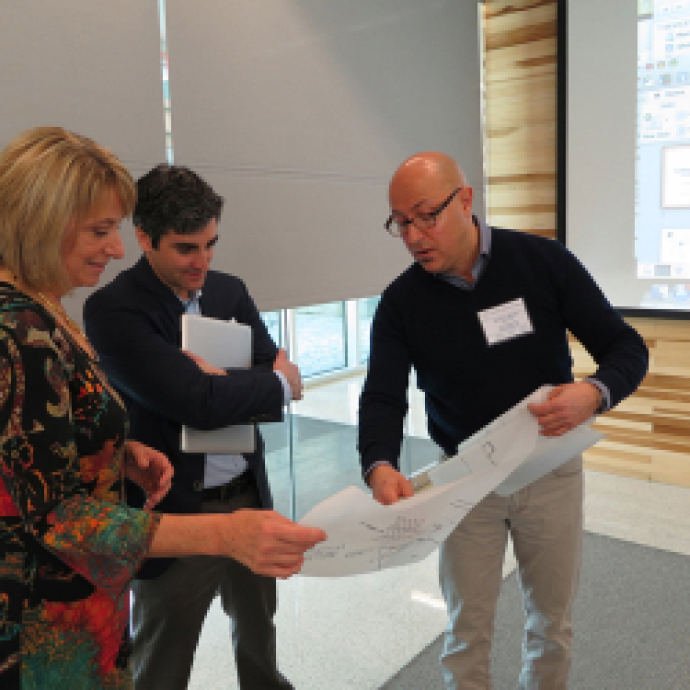
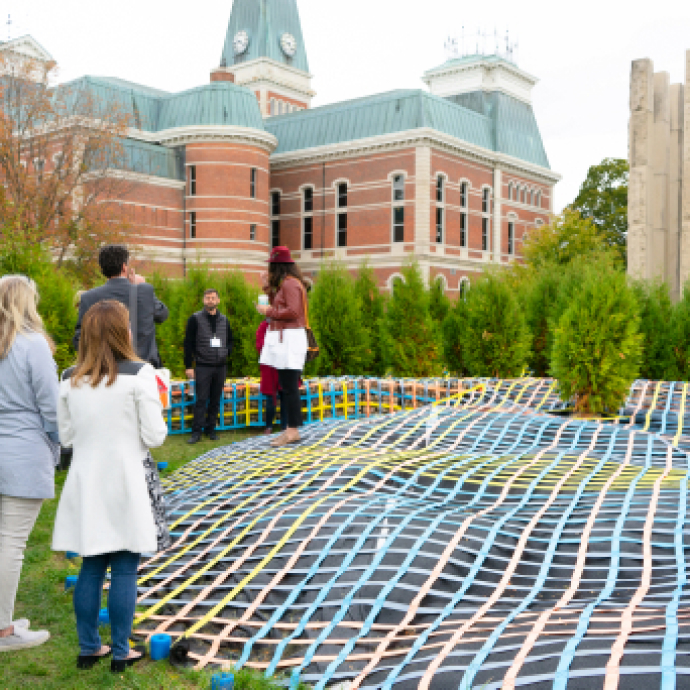
Awards
Founders’ Award, Landscape Architecture Foundation
View AwardPresidential Award for Design Excellence, White House
View AwardProgressive Architecture Award, Architecture Magazine
Institute Honor Award, American Institute of Architects
Explore Past MICD Projects
ProjectsStay informed.
Receive program updates, event announcements, and city design news.

